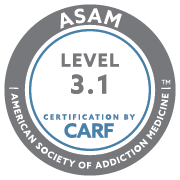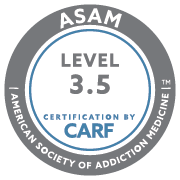For many people, the short cold days that come with winter can leave you feeling a bit down and low on energy. However, when you’re struggling with an addiction or living in recovery, the winter blues can be dangerous. Winter also comes with celebrations, family gatherings and many stresses that don’t occur at other times of the year. All of these events or activities can put those in early recovery at a risk for relapse. Planning ahead and seeking help when you need it are important steps in maintaining sobriety when winter arrives.
The slump people experience when winter arrives, however, can be caused by a disorder known as Seasonal Affective Disorder (SAD). This is a seasonal depression that occurs in late fall and continues into winter. It is common for people to brush this off as just a seasonal funk, but SAD can be treated. Whether you’re in recovery or still in a treatment program, getting help for SAD is very important. SAD is typically treated through light therapy, medication and psychotherapy. Failing to seek help for SAD can lead to a relapse or struggles during treatment. So, if you’ve been feeling down for several days and don’t enjoy your normal activities, talk to your doctor or therapist.
The beginning of winter also means the start of the holiday season. Holidays often mean family and friends gathering together to celebrate. However, these gatherings may include people who are not aware your new lifestyle doesn’t include alcohol or substance use. In addition, holidays and gatherings can produce stress which you may not experience during the rest of the year. If you know you may experience events that will cause stress or put you at risk for a relapse, it’s important to plan ahead. Having a plan in place to explain to family or friends that you no longer use, can help you avoid a situation where you’re being offered a substance. Also, plan ways to control and avoid stress whenever possible.
If you find yourself feeling like you are in a winter slump, we have a few activities that may raise your mood. However, if you feel like you may be experiencing SAD, talk to your doctor or therapist.
Exercise: Breaking a sweat and working out for 30 minutes, 3-5 times per week, can make a big difference in your mood. A good workout can help increase the dopamine levels in your brain which can leave you feeling much happier.
Go outside: With short days and more time spent indoors, it’s easy to feel cooped up and your bodies vitamin D levels may even drop. Your body uses sunlight to create vitamin D which can help raise your mood. So, whether it’s a short walk or shoveling your sidewalk, that time outside can leave you feeling much better!
Spend time with family or friends: Time with those you love can boost your mood quickly. Just make sure they are supportive of your sober lifestyle.
Learn something new: Find a class from your local library or community college. There are also thousands of online classes that you can use to learn a new skill or just study something you’re interested in. This will let you focus on something new instead of the weather or a stressful event.
If you are interested in how Rimrock can help you or a loved one start the journey to recovery, we are excited to talk to you. Our Admissions Department can be reached at 406-248-3175 or 800-227-3953. Normal admission hours are between 8:00 am and 5:00 pm Mountain Time, Monday through Friday. However, we do have staff available anytime to take your call. Contact us today to begin your journey.





